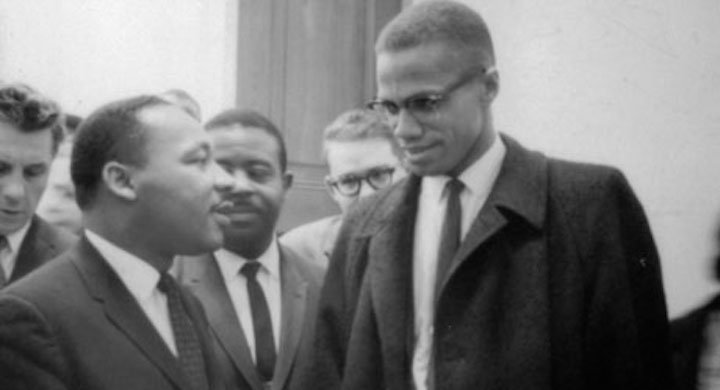If you’re outspoken on the issue of race, chances are, at one point or another, you’ve had a conversation with a so-called “pacifist” who has cited MLK. King was nonviolent, they say, so would-be revolutionaries should be patient and think about how they’re pursuing racial justice.
Whether they mean to or not, these “pseudo-pacifists” silence oppressed people and perpetuate inequality by failing to see the role power plays in their analysis.
I want to be clear about three things:
- I am for Martin Luther King Jr.
- I am for “intersectionality.”
- I am for pacifism.
What I am against is a closed-minded conflation of pacifism with indifference that equates doing nothing with Dr. King. Many privileged pacifists fail to mention how gun control was originally a method used to lessen the irrational fears of whites by disarming oppressed blacks.
Pacifism is not the same thing as doing nothing. The opposite of pacifism is not violence. The opposite of pacifism is indifference.
As Martin Luther King said himself.
There’s a great deal of difference between non-resistance to evil and non-violent resistance. Non-resistance leaves you in a state of stagnant passivity and dead-end complacency. Wherein non-violent resistance means you do resist in a very strong and determined manner. And I think some of the criticisms of non-violence, or some of the critics, fail to realize that we are talking about something very strong, and they confuse non-resistance with non-violent resistance.
Alongside pseudo-pacifism there is a false assumption that a refusal to act violently leads to less violence. But violence is not simply physical terror imposed upon another; violence is also physical deprivation of basic necessities unjustly imposed upon a group of people. This is what we call “institutionalized violence.”
Doing nothing perpetuates an institutionalized violence. In order to meet people’s needs we must confront the system that is making them needy. Activism, violent or not, is costly. If your pacifism is not costing you anything, chances are you’re embracing a pseudo-pacifism as opposed to an active pacifism.
Pseudo-pacifism diminishes our ability to talk with others about how their justice struggle intersects with others. It lacks confrontation. It ignores injustice. Furthermore, it perpetuates violence.
I am convinced that injustice is empowered and maintained by the millions of “innocent bystanders” who silently standby and do nothing.
Historically, and presently, it’s hypocritical for Christian’s to say something along the lines of, “Violence against injustice is never acceptable” while we are benefitting from a violence that began with Constantine and has yet to stop since.
I’m suggesting that we begin to differentiate between standing up for “pacifism” and standing against a culture of racism.
Jesus was not a pseudo-pacifist. Whether he was pacifist or not, Jesus was anything but cowardly, indifferent, or apathetic. Jesus confronted the issues of his day head on. In my opinion, he confronted them non-violently. But confronting injustices non-violently still requires risk and sacrifice. For Jesus, it eventually cost him his life.
The Christian American pseudo-pacifist seems to be anything but a resemblance of Christ and his disciples on this point. So the next time we’re tempted to use MLK or Jesus to silence our supposed opposition, we must first question if we are truly modeling the lives we’re preaching or merely using these lives to excuse a pseudo-pacifism.

